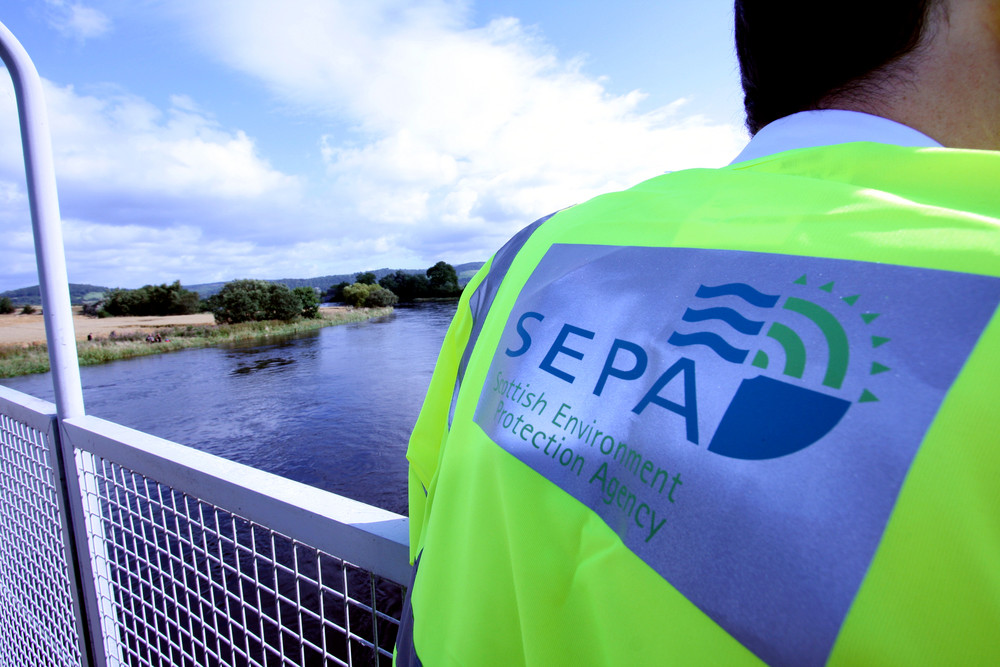The Scottish Environment Protection Agency (Sepa) ditched a written report to its board on a fish farm pesticide following fears it could attract freedom of information (FoI) requests, according to internal emails.
Sepa’s chief executive, Terry A’Hearn, decided instead to make a verbal report that wouldn’t be published. He had been warned by his officials that mentions of the issue online could “generate FoI enquiries”.
The revelation has shocked campaigners, who accuse Sepa of “gaming the system to avoid being held to account”. A’Hearn accepts that a staff email was “inappropriate”, but insists that it was important for the board to be given accurate information.
A report drafted in September 2016 for a forthcoming Sepa board meeting outlined new arrangements for regulating the use of Slice, a toxic chemical used to kill the lice that eat caged salmon that has generated controversy.
But an email to A’Hearn from a Sepa official highlighted “concerns” that when it went online the report could prompt people to “seek to see relevant documentation e.g. under FoI”.
The email pointed out that “it may take some time for Sepa to consider and process such requests”. It then suggested that the report could be dropped and board members be “verbally advised” instead.
An alternative of making the matter a “standalone agenda item for the board to be informed in private” would also “generate FoI enquiries by drawing further attention to the issue on the agenda”, the staff email warned.
In reply A’Hearn said his main concern was that the board was given accurate information. “Given the challenges in getting the wording right and not misleading people, let’s drop the material,” he said in an email, adding he would give a verbal update.
The Campaign for Freedom of Information in Scotland accused Sepa of blatantly trying to avoid FoI. “The email trail shows a desire to give the board accurate information but not the public,” said campaign convener, Carole Ewart.
“Deliberately withholding information from the public prevents informed debate and scrutiny in an area of clear public interest.”
Ewart argued that the evidence of calculated measures to avoid FoI law must be included in post legislative scrutiny promised – but not yet delivered – by the Scottish Parliament. “We urge the parliament to act quickly and produce a robust report on where loopholes can be closed and the law made more robust.”
The Labour MSP and FoI campaigner, Neil Findlay, accused Sepa of trying to avoid public scrutiny. “This is absolutely shocking,” he said.
“A government agency that is supposed to be charged with protecting our environment is following the practices of its paymasters in the SNP government by avoiding potential scrutiny. I would suggest Mr A’Hearn has a lot of explaining to do and ask on how many other occasions this highly paid chief executive had gamed the system to avoid being held to account.”
How the Scottish Government ‘nuanced’ away fish farm pesticide ban
The emails were released under FoI law to Don Staniford from the Global Alliance Against Industrial Aquaculture (GAAIA), with an apology from Sepa for failing to release them earlier. “Sepa’s CEO and other high level staff sought to hide the truth from both the public and the Sepa board,” he alleged.
“Before filing an appeal to the Scottish Information Commissioner, GAAIA has given Sepa one last chance to come clean and provide full disclosure. It would not be surprising at all to discover even more embarrassing emails and damning documents.”
A’Hearn reiterated that it was important that Sepa’s board was given accurate information on a complex issue. “A full verbal briefing was provided at the board, which was summarised in the official minutes of the meeting,” he said.
“This decision was mine and I believe it was the right one to make. The individual email from a staff member was inappropriate and that was reflected in my response.”
Emails released by the Scottish Environment Protection Agency
A version of this story was published in the print edition of the Sunday Herald on 5 November 2017.














